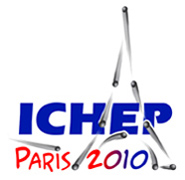Speaker
Johanna Fleckner
(CERN / University of Mainz)
Description
First 7 TeV proton-proton collisions produced by the Large Hadron Collider at CERN have been recorded by the ATLAS experiments in 2010. The ability to accurately and efficiently reconstruct the trajectories of charged particles produced in these collisions is a critical component in the measurements that will be presented at this conference. This talk will present results on the performance of tracking and vertex-reconstruction using the ATLAS tracking systems. Various methods are employed by the two experiments for determining the efficiency of track reconstruction using the first data collected by the detectors. Furthermore, the methods to control the track momentum scale and related systematic uncertainties will be discussed. Finally, the reconstruction of known particle decays is presented as important tool to understand the tracking and vertexing performance, as well as the particle identification capabilities.
The identification of b-quark jets is an important tool for the physics programs of the ATLAS experiment. So-called b-tagging algorithms take advantage of either the decay to a soft lepton or a displaced vertex caused by the long-lived decay of a b hadron via the weak force. As a result key ingredients to b-tagging algorithms are the precise trajectory measurement of charged particle tracks and detection of low pT leptons. The distributions of the corresponding observables - track impact parameters, secondary vertices and lepton momenta - were measured in pp collisions at √s=7 TeV, and compared to the predictions from Monte Carlo simulation. First results on efficiencies and mis-identification rates are shown. The calibration strategies that will be used for early data and initial studies that will lead to a fully data-driven calibration for the b-tagging algorithms are also presented.
